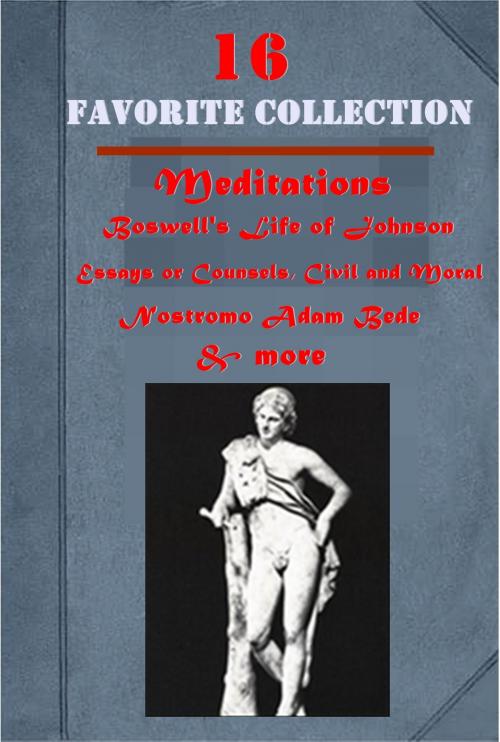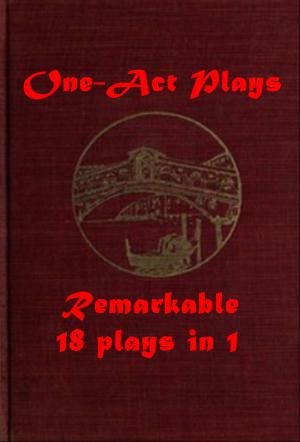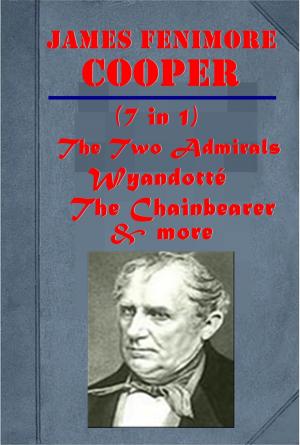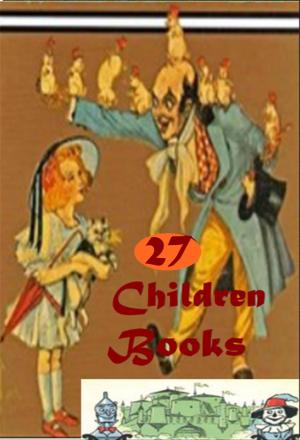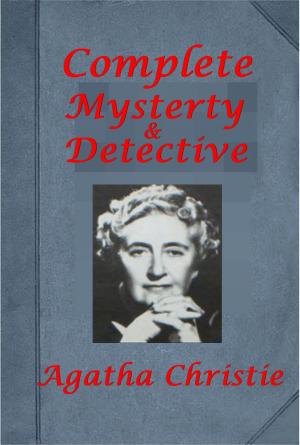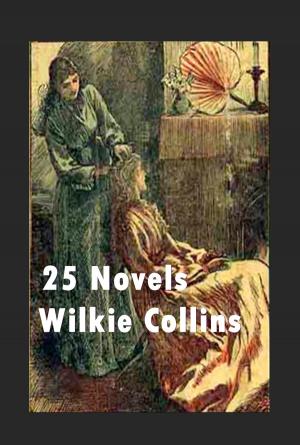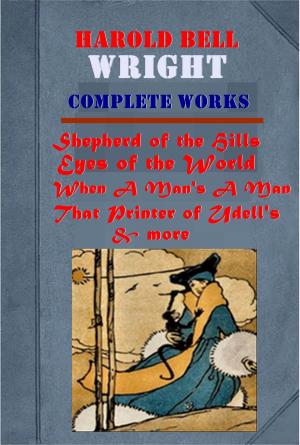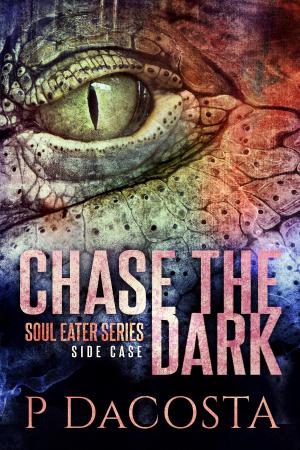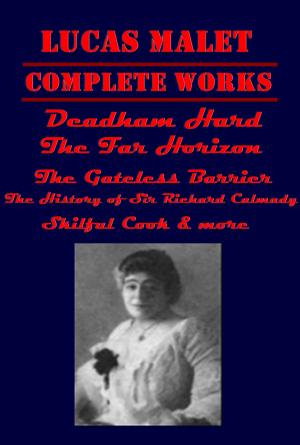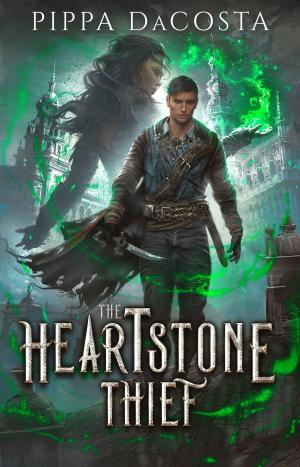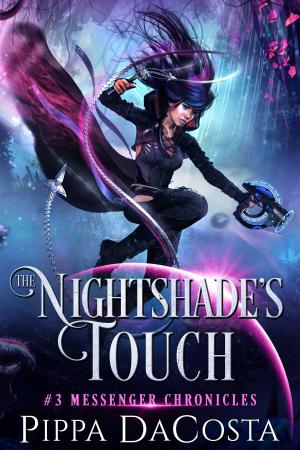Complete Favorite Romance History Philosophy Humorous Anthologies
Nonfiction, Religion & Spirituality, Philosophy, Methodology, Fiction & Literature, Humorous, Romance, Historical| Author: | James Boswell, Marcus Aurelius, Francis Bacon | ISBN: | 1230000198326 |
| Publisher: | ACE Publishing | Publication: | December 21, 2013 |
| Imprint: | Language: | English |
| Author: | James Boswell, Marcus Aurelius, Francis Bacon |
| ISBN: | 1230000198326 |
| Publisher: | ACE Publishing |
| Publication: | December 21, 2013 |
| Imprint: | |
| Language: | English |
This collection includes an active table of contents for easy navigation.
Contents
Boswell's Life of Johnson by James Boswell (1791) 887
The History of Napoleon Buonaparte by John Gibson Lockhart (1906)
Tanglewood Tales by Nathaniel Hawthorne (1853)
Essays of Francis Bacon or Counsels, Civil and Moral (1625)
Biographia Literaria by Samuel Taylor Coleridge (1817) 982
The Works of Charles and Mary Lamb, Volume 2 - Elia; and The Last Essays of Elia (1823)
Meditations by Marcus Aurelius (180 CE)
Harold by Edward Bulwer-Lytton (1914)
Westward Ho! By Charles Kingsley (1855)
Adam Bede by George Eliot (1859)
The Cloister and the Hearth by Charles Reade (1861)
The French Revolution by Thomas Carlyle (1837)
The History of England from the Accession of James II, vol 1 (1848)
The History of England from the Accession of James II, vol 2 (1848)
The History of England from the Accession of James II, vol 3 (1848)
Nostromo by Joseph Conrad (1904)
Meditations by Marcus Aurelius (180 CE)
There is probably no more romantic story of a book in the history of literature than that of the volume known as the 'Meditations of Marcus Aurelius.' It is merely the commonplace book or diary of a Roman emperor (121-180 A.D.), who at the end of a very busy and troublous reign, just when worries were thickest, jotted down all the serious thoughts that came to him with regard to the meaning of life and the way it should be lived.
Harold by Edward Bulwer-Lytton (1914)
The tragic history of Harold's fall; descriptions of the battles of Stamford Bridge and Hastings and of English life in the eleventh century.
Westward Ho! By Charles Kingsley (1855)
This is the best novel ever written on the greatest age of English adventure. It is a saga of the Devonshire sailors who, like Drake, sailed to the unknown to found an empire for their queen, "as good as any which his Majesty of Spain had." The story swings from start to close at a breathless pace.
Adam Bede by George Eliot (1859)
The book which made Mrs. Carlyle feel "in charity with the whole human race" could be no ordinary one. Adam Bede contains all George Eliot's broad and catholic knowledge of life, and the characters are all drawn by the hand of a master.
The Cloister and the Hearth (1861)
There are many who think this the greatest of all historical novels, and it is certain that there are few better. It is not a story so much as a vast and varied transcript of life. It is also a delightful romance, and Gerard and Margaret are among the immortals of fiction.
Nostromo by Joseph Conrad (1904)
The history of a South American revolution. But on this leading theme there hang such a multitude of side-issues and of individual experiences that it is certainly the hardest of Conrad's novels to summarize. In this story of vast riches, of unbridled passions, of patriotism, of greed, of barbaric cruelty, of the most debased and of the most noble impulses, the whole history of South America seems to be epitomized.
This collection includes an active table of contents for easy navigation.
Contents
Boswell's Life of Johnson by James Boswell (1791) 887
The History of Napoleon Buonaparte by John Gibson Lockhart (1906)
Tanglewood Tales by Nathaniel Hawthorne (1853)
Essays of Francis Bacon or Counsels, Civil and Moral (1625)
Biographia Literaria by Samuel Taylor Coleridge (1817) 982
The Works of Charles and Mary Lamb, Volume 2 - Elia; and The Last Essays of Elia (1823)
Meditations by Marcus Aurelius (180 CE)
Harold by Edward Bulwer-Lytton (1914)
Westward Ho! By Charles Kingsley (1855)
Adam Bede by George Eliot (1859)
The Cloister and the Hearth by Charles Reade (1861)
The French Revolution by Thomas Carlyle (1837)
The History of England from the Accession of James II, vol 1 (1848)
The History of England from the Accession of James II, vol 2 (1848)
The History of England from the Accession of James II, vol 3 (1848)
Nostromo by Joseph Conrad (1904)
Meditations by Marcus Aurelius (180 CE)
There is probably no more romantic story of a book in the history of literature than that of the volume known as the 'Meditations of Marcus Aurelius.' It is merely the commonplace book or diary of a Roman emperor (121-180 A.D.), who at the end of a very busy and troublous reign, just when worries were thickest, jotted down all the serious thoughts that came to him with regard to the meaning of life and the way it should be lived.
Harold by Edward Bulwer-Lytton (1914)
The tragic history of Harold's fall; descriptions of the battles of Stamford Bridge and Hastings and of English life in the eleventh century.
Westward Ho! By Charles Kingsley (1855)
This is the best novel ever written on the greatest age of English adventure. It is a saga of the Devonshire sailors who, like Drake, sailed to the unknown to found an empire for their queen, "as good as any which his Majesty of Spain had." The story swings from start to close at a breathless pace.
Adam Bede by George Eliot (1859)
The book which made Mrs. Carlyle feel "in charity with the whole human race" could be no ordinary one. Adam Bede contains all George Eliot's broad and catholic knowledge of life, and the characters are all drawn by the hand of a master.
The Cloister and the Hearth (1861)
There are many who think this the greatest of all historical novels, and it is certain that there are few better. It is not a story so much as a vast and varied transcript of life. It is also a delightful romance, and Gerard and Margaret are among the immortals of fiction.
Nostromo by Joseph Conrad (1904)
The history of a South American revolution. But on this leading theme there hang such a multitude of side-issues and of individual experiences that it is certainly the hardest of Conrad's novels to summarize. In this story of vast riches, of unbridled passions, of patriotism, of greed, of barbaric cruelty, of the most debased and of the most noble impulses, the whole history of South America seems to be epitomized.
